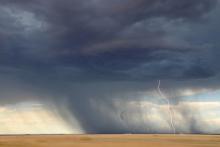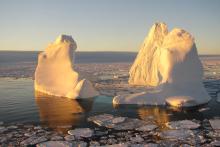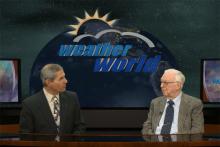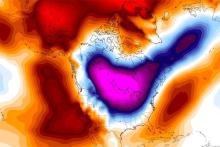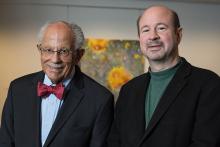Once the fodder of science fiction books and movies, Artificial intelligence -- AI -- and machine learning are making an impact on nearly every facet of society.
In the future, weather forecasts that provide storm warnings and help us plan our daily lives could come up to five days sooner before reaching the limits of numerical weather prediction, scientists said.
The North Atlantic warming hole (NAWH), a region of reduced warming located in the North Atlantic Ocean, significantly affects the North Atlantic jet stream in climate simulations of the future, according to a team of researchers.
For anyone, a trip to Argentina would have been exciting. But for Rachel Gutierrez, who’s long been fascinated by severe weather such as hail and thunderstorms, it represents the holy grail of her research interests.
Charles Hosler, dean of Penn State's College of Earth and Mineral Sciences (EMS) from 1965-85, is credited with continuing the transition of the college from its longtime mineral extraction and processing focus to one comprising experts of the entire Earth system.
Using artificial intelligence and machine learning technologies may help scientists better understand weather and weather variability. As the climate changes, this may help prepare people for changes in their region's weather patterns, and better preparedness could save money and lives.
Fitness apps and other smart devices embedded with GPS satellite chips and other sensors may use satellite data to help users stay fit and healthy, but, according to Penn State and Penn State Dickinson Law researchers, they unwittingly open a gateway to privacy-related legal and ethical headaches and are a repeated source of national security threats.
Penn State's Office of the Vice Provost for Faculty Affairs has named Fuqing Zhang, professor of meteorology and atmospheric science, a distinguished professors for 2019.
Michael Mann, distinguished professor of atmospheric science, Penn State, has been awarded the 2019 Tyler Prize for Environmental Achievement. Founded in 1973, the Tyler Prize — often referred to as the "Nobel Prize for the Environment" — remains the premiere international award for environmental science.



